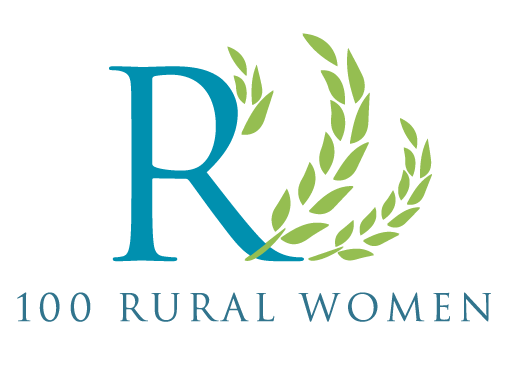“Be willing to try new things, be open to ideas, be okay with not having all the answers, but know where to find the answers.”
Tell us a bit about yourself!
My name is Liberty Sleiter, I was born and raised in West Plain , Missouri, nowhere near here. Both of my parents are retired school teachers, I also have a brother and he along with his family still live in West Plain, which is about 14 hours away. I graduated from high school in 1994, I got my associates degree in West Plains at Missouri State University which was called Southwest Missouri State University. I then went on and got my bachelor’s degree from College of the Ozarks in Point Lookout, Missouri and then my master’s degree in social work and that would’ve been in 1994. I graduated from high school in 1994, 1996 would’ve been my associates degree, in 1998 bachelor, and then 2000 my master’s degree, so I went straight through with all my schooling. Then I have my post 2 years of clinical supervision, so I am a LICSW, which is a Licensed Independent Clinical Social Worker otherwise known as a mental health professional.
How was it living in Rural America? What’s your connection to rural America?
I loved it! That’s why I loved moving to Morris. Everyone knows everybody, there’s a passion to help people and to be a good neighbor and a good friend. So, I was raised in a rural community, and I’ve enjoyed living in a rural community. I’ve been in Morris for 20 years and I have been employed with Stevens County Human Services for 20 years.
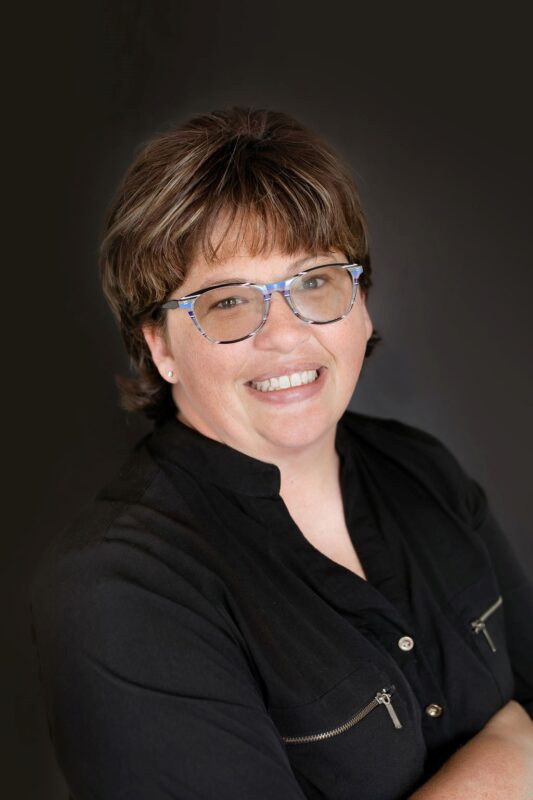
Is this area bigger/ smaller compared to where you’re from?
So, Morris has about 5,000 people and when I was in West Plains it was about 10,000, but still the same comparisons as far as resources and opportunities are comparable in both Morris and Missouri.
Did you do any social work back home?
I did! Yes, so I was a medical social worker at a hospital in Branson, Missouri. Well known tourist town and then I also worked in residence life at College of the Ozarks after I graduated and working towards my master’s degree
What type of work have you focused on?
When I was hired with Stevens County Human Services, I was hired as a school based social worker, so I was in the school systems. Those were some collaborative funding, and they were able to access the funding to support the position. Then the funding changed and so my role within human services changed and I was the implementer of the children’s mental health mobile crisis team that is a five county REACH program. There was an adult team, but then I had the opportunity to implement the children’s program for the crisis team. I did that until the individual that had been in the director position retired and then I applied and made the transition.
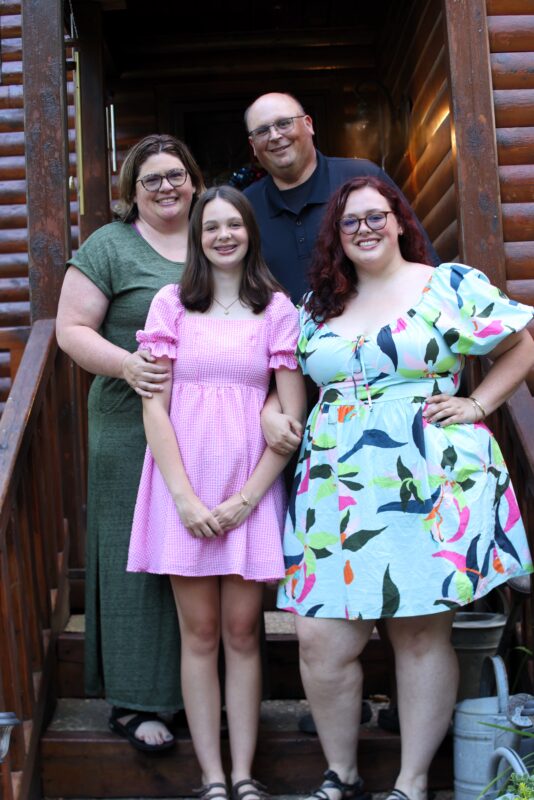
Any hardships attempting to become director?
Yes. I think one hardship was that I came from the mental health work and human services accompanies so many programs and it is a continually an everyday learning curve on changes that are being implemented and we have a wonderful staff that educates me everyday on things that are changing.
I know you talked a bit about some positive outcomes that came with the job, are there any additional positive outcomes you would like to add?
I think some positive additional outcomes is that there are some improvements with our technology that we’ve been able to implement, and we’ve also been able to increase the staff. Even just within human services we have a sunshine committee, and its main purpose is to provide humor and enjoyment in the job. It makes you think about other things that aren’t related to our job, like we talk about what’s our favorite food at the fair, sort of those things. I think that anything that we can do to support the employees, mental health, and work- life balance is so very much needed. I know I can learn a lot from that too.
What made you want to work in human services? Is it something you always planned on doing?
You know 20 years ago if I would’ve thought, where do I want to go? What do I want to do? You know I want to help people and I’ve grown my own way by realizing that I want to meet people where they’re at. I think that’s a difference between helping people because I may try to help somebody, but we need to see where their person is at and meet them where they’re at and give the help they want and not necessarily what we feel is going to be beneficial. I don’t get a chance to talk to the general public to ask what we can do differently? Like I’m always looking within us and our families that we serve, I’m always open to learning and giving people thoughts.
What support do you think would help women serving formal leadership roles in rural communities?
From my experience I would say formal and informal support systems. I have always had a mentor as I went through my master’s degree program. You have to find people that you can trust that believe in you. I think that formal and even that informal system is key. I have a very supportive spouse and family, and they understand that I don’t have a Monday through Friday 9am- 5pm job and they see the benefit of what I’m able to do and what our agency is able to do in the community.
With the type of work you do, you have come across the Agriculture Improvement Act, also known as the Farm Bill, how do you think this will affect rural communities?
It will have a huge impact, significant impact, as far as the extension if it does not go through, we have a large food insecurity issue within our county. We have a robust food shelf and under that food shelf is the backpack program that is based off at the school. We also have food drops over the summer, we had our last one yesterday, afternoon evening. We also have support through the University of Minnesota Morris that are under our food shelf and the farmer’s market. I am able to serve on that food shelf board and the increase in individuals has significantly compounded right around when covid started. We really saw our numbers greatly impacted. It’s a big deal, it really is. Even within the SNAP benefits we provide in human services.
Do you think this county has more resources than other rural communities?
I think we have a very giving community, and we can see that on our food shelf alone by the donations we receive, whether monetary or actual food is very beneficial to the people that we serve as far as who is going to possibly makeup that loss. You know I think it comes down to educating our community, looking for grants, or resources that we can possibly get.
You mentioned the backpack program, could you elaborate on what that program consists of?
Kids are able to take home a bag full of non- perishable goods that are easy to open and cook. Like microwavable mac and cheese and pouch apple sauces. We work with the school by packing items and putting those items in a bag and into their locker, so then it’s very discreet. The last thing we want to do is make anyone feel more desperate than maybe they probably already are if they’re asking for additional food or assistance. You know that’s something within human services that I think the staff really do a good job of understanding when people walk through our doors they are often at their lowest point. Anything we can do to support them in any way that’s what we’re going to do, we’re a helping community and agency.
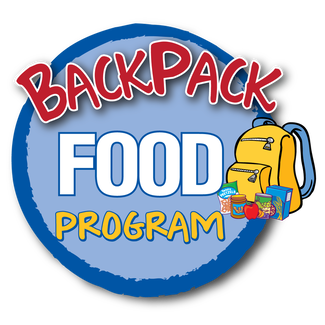
Have you thought about implementing new programs for food insecurity in the county?
Yes, I think it’ll be going back to the umbrella of the food shelf and supporting the backpack program and the food drop. I know in July, a food drop ran out of food within an hour and a half, so there is a great need there and food is a basic need. We want people to have access to that. So, at the food shelf, yes, there is a coordinator for volunteers. But if their SNAP benefits are going to be decreased, they are going to be looking for other resources.
Any encouraging words for rural women in leadership positions?
Follow what you’re passionate about because you will never find a job that you will want to go to every single day but find something that drives you. I would also say be willing to try new things, be open to ideas, be okay with not having all the answers, but know where to find the answers. I think this is a great opportunity to highlight cool things that are happening in rural Minnesota, by women!

